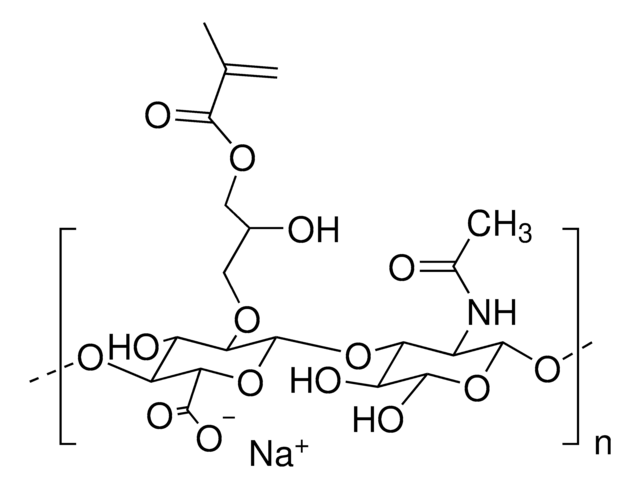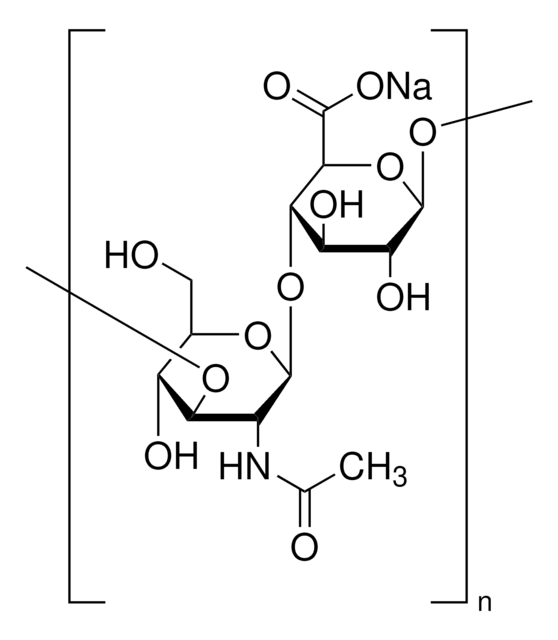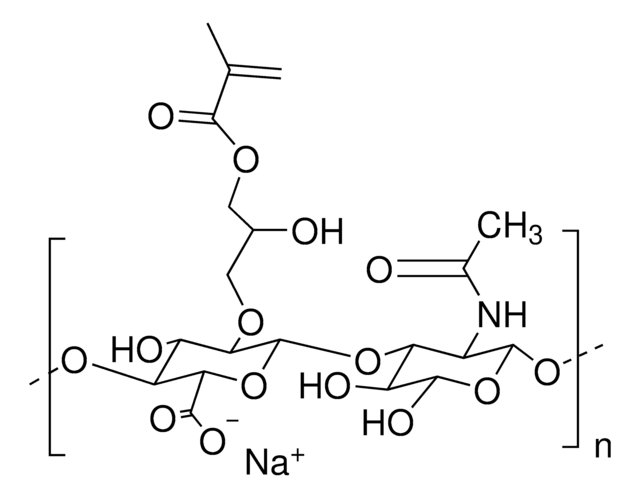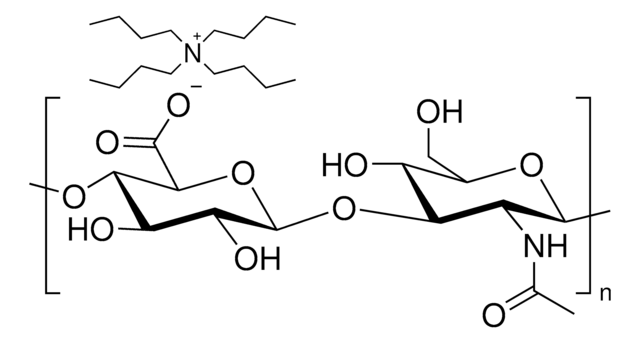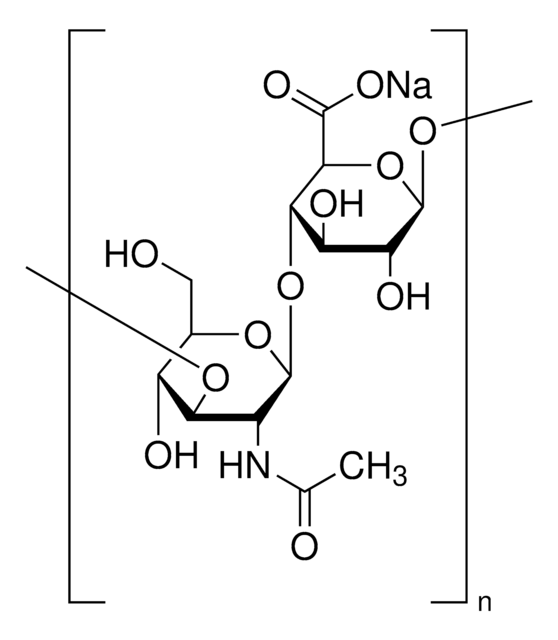930024
Hyaluronic acid adipic dihydrazide (HA-ADH)
Synonym(s):
HA-ADH
Sign Into View Organizational & Contract Pricing
All Photos(1)
About This Item
Linear Formula:
(C20H33N5O12)n
UNSPSC Code:
12352125
NACRES:
NA.23
Recommended Products
form
solid (Chunks)
Quality Level
color
white to off-white
application(s)
3D bioprinting
storage temp.
2-8°C
Related Categories
General description
Adipic acid dihydrazide is commonly used as a functional group to allow for HA cross-linking to polymers containing aldehyde groups or that are aldehyde-functionalized, like HA-aldehyde or PEG-aldehyde. These biomaterials are attractive for their tunable properties and low cytotoxicity.
Degree of functionalization (50-80%)
Application
Hyaluronic acid (HA) is a ubiquitous extracellular matrix component, which makes it attractive for use in medical applications for it′s biocompatibility and low immunogenicity. HA-based polymers are used to make hydrogels for a wide variety of applications from tissue engineering and regeneration to drug delivery and bioinks for 3D bioprinting. To make hydrogels, HA has to be derivatized with groups that can cross-link to to other functionalized polymers.
Storage Class
11 - Combustible Solids
wgk_germany
WGK 3
flash_point_f
Not applicable
flash_point_c
Not applicable
Choose from one of the most recent versions:
Certificates of Analysis (COA)
Lot/Batch Number
Sorry, we don't have COAs for this product available online at this time.
If you need assistance, please contact Customer Support.
Already Own This Product?
Find documentation for the products that you have recently purchased in the Document Library.
Self-crosslinking and injectable hyaluronic acid/RGD-functionalized pectin hydrogel for cartilage tissue engineering
Chen, et al.
Carbohydrate Polymers, 166, 31-44 (2017)
Yuguo Lei et al.
Biomaterials, 32(1), 39-47 (2010-10-12)
Synthetic hydrogel scaffolds that can be used as culture systems that mimic the natural stem cell niche are of increased importance for stem cell biology and regenerative medicine. These artificial niches can be utilized to control the stem cell fate
Our team of scientists has experience in all areas of research including Life Science, Material Science, Chemical Synthesis, Chromatography, Analytical and many others.
Contact Technical Service
